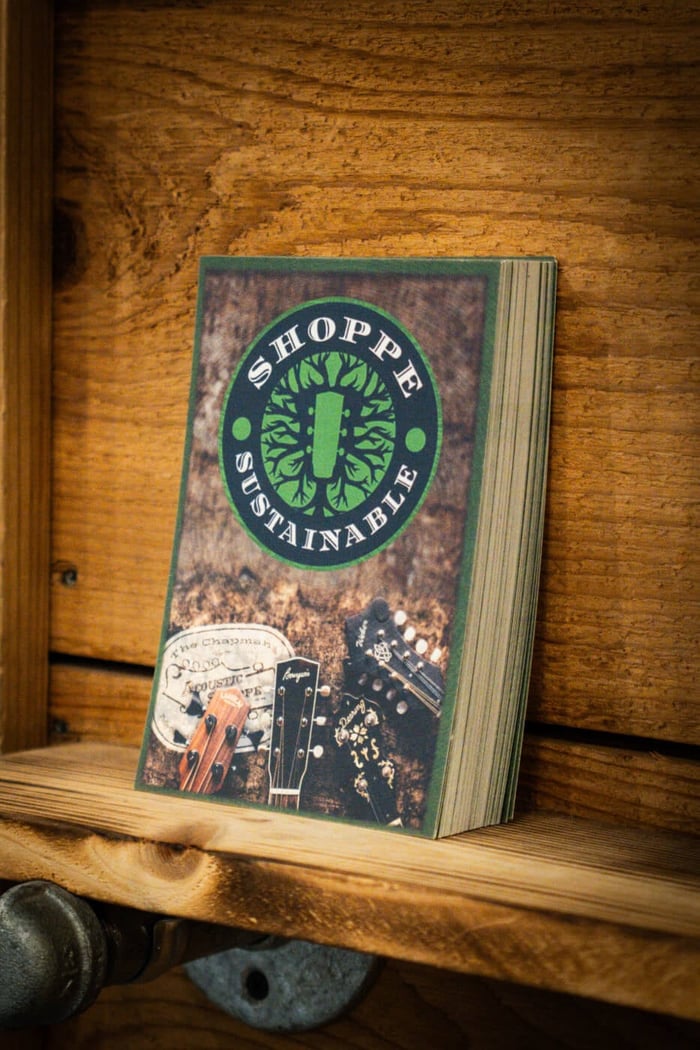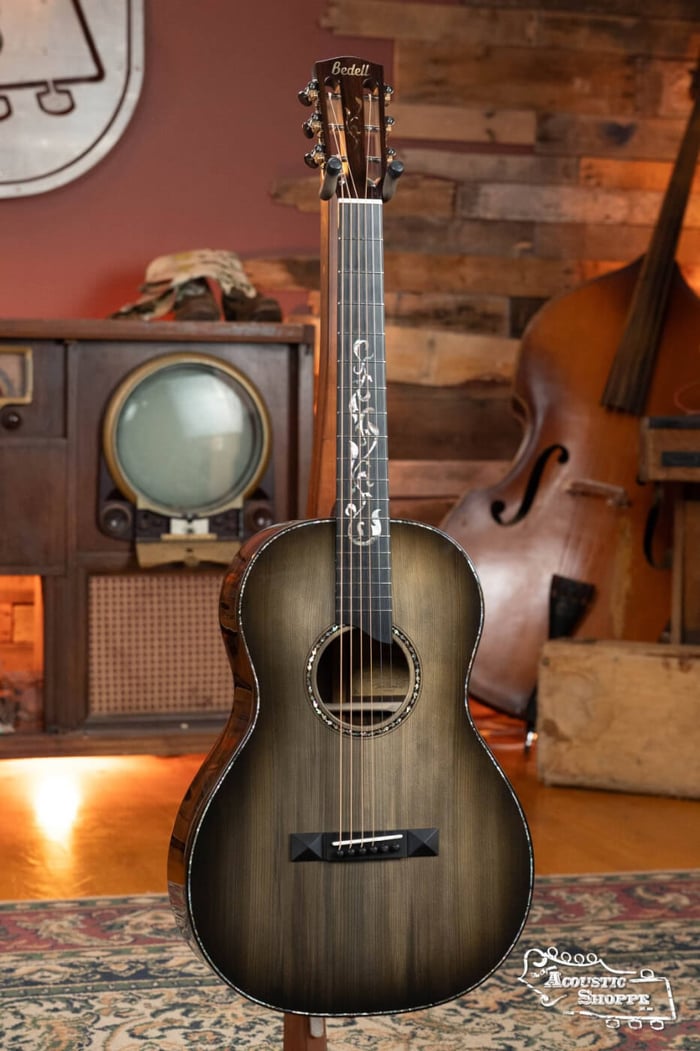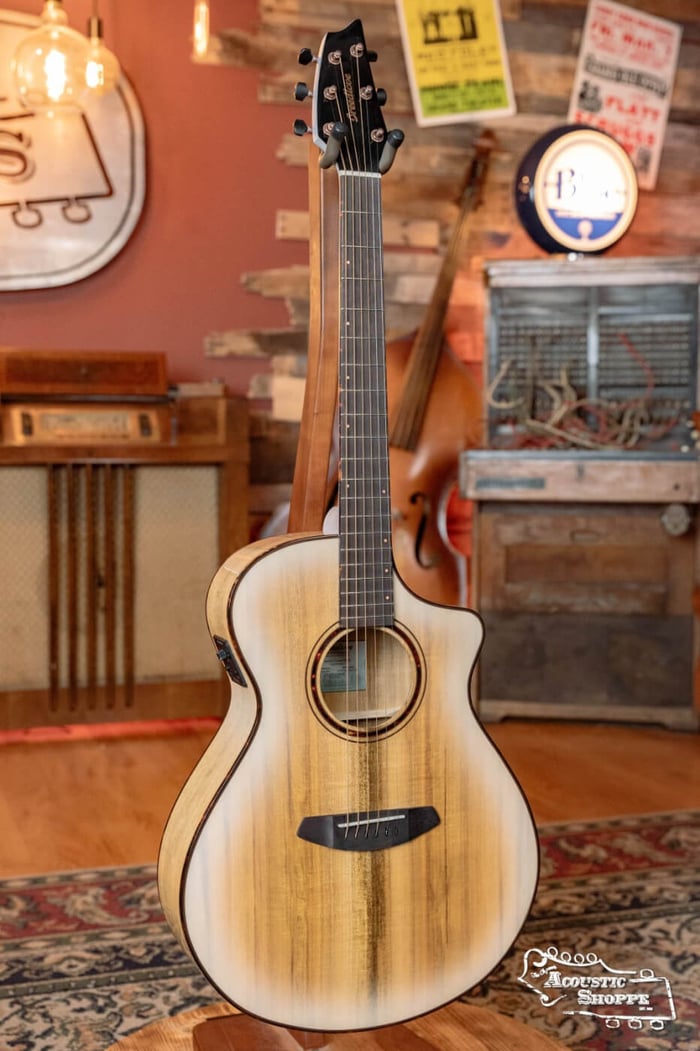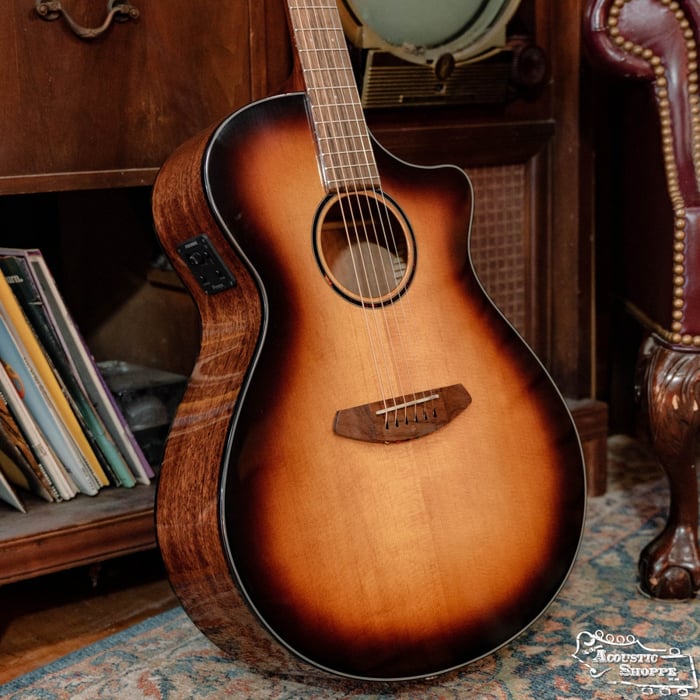Unlock the melody of sustainability! Dive into our blog post exploring the harmonious relationship between music and eco-conscious practices. Discover how the music industry is hitting all the right notes with ethical sourcing, reforestation initiatives, and a commitment to a greener world. Join the chorus for change today!
Introduction
Welcome back to the Acoustic Shoppe Blogge! Today, we’re delving into a crucial topic that intertwines the art of music with the pressing need for environmental sustainability. In this post, we’ll explore the relationship between musical instruments and forest ecosystems, the importance of ethical sourcing, and the proactive steps being taken by musicians and manufacturers to ensure a sustainable future. Join us as we uncover how our choices, both as consumers and creators, can harmonize the beauty of music with the health of our planet.

Understanding the Forest as an Ecosystem
In our increasingly industrial world, we often overlook the delicate balance of our natural ecosystems. Forests are living, breathing communities that cannot simply be exploited for resources without considering the broader impact. Clear-cutting forests not only damages the ecosystem but also disrupts the natural harmony that takes centuries to develop. When we view forests solely as resources to be harvested, we ignore the complex interactions between the flora, fauna, and microorganisms that create a thriving environment.
Forests play a crucial role in maintaining the earth's ecological balance. They act as carbon sinks, absorbing carbon dioxide from the atmosphere and mitigating the effects of climate change. They also protect soil from erosion, regulate water cycles, and provide habitat for countless species. By understanding forests as interconnected ecosystems, we can appreciate the need to harvest resources in a way that maintains their health and resilience.
The Consumer’s Role in Sustainable Choices
Consumers are becoming more aware of the origins of the products they purchase. This shift in consciousness is crucial for fostering sustainable practices. By raising awareness, we can encourage more thoughtful consumption that prioritizes the environment. Understanding the impact of purchases and how products are sourced is a vital step towards sustainability.
When consumers choose products made from sustainably sourced materials, they support practices that protect the environment. This is particularly important for products like musical instruments, which often use rare and valuable woods. By asking questions about where the wood comes from and how it is harvested, consumers can drive demand for sustainably sourced products and encourage manufacturers to adopt more environmentally friendly practices.
Musicians and Their Instruments: A Call for Awareness
Musicians, often passionate about conservation and social causes, rarely consider the origins of their instruments. Instruments like guitars and mandolins are made from wood, and the source of this wood significantly impacts the environment. It's important for musicians to understand and appreciate where their instruments come from and the environmental footprint they leave behind.
Musical instruments are often crafted from woods such as mahogany, rosewood, and spruce, which are prized for their tonal qualities. However, these trees can take decades or even centuries to grow to a size suitable for instrument making. Unsustainable harvesting practices can deplete these resources, leading to deforestation and loss of biodiversity. By choosing instruments made from sustainably sourced woods, musicians can help protect these valuable resources for future generations.
Initiating Change: The Shop Sustainable Program
The Shop Sustainable program is a proactive step towards addressing these concerns. The initiative involves planting trees for every guitar or mandolin sold, regardless of whether the instrument meets the FSC (Forest Stewardship Council) standards. This program is a testament to the commitment to sustainability, having already planted over 3,700 trees worldwide.
The program operates on a simple yet powerful principle: for every instrument sold, a tree is planted. This helps offset the environmental impact of the wood used in the instruments and contributes to reforestation efforts. In cases where an instrument does not meet the FSC standards, five trees are planted to compensate for the higher environmental cost. This approach not only supports reforestation but also raises awareness about the importance of sustainable sourcing.
Transparency and Ethical Sourcing
Transparency in sourcing materials is another critical aspect of sustainability. Establishing relationships with suppliers and understanding their processes ensures that the wood used in instruments is ethically sourced, avoiding practices like clear-cut harvesting that devastate the environment. By visiting suppliers and verifying their practices, companies can ensure they are sourcing wood in a way that supports forest health and regeneration.
Ethical sourcing involves more than just avoiding clear-cutting. It includes ensuring that forests are managed in a way that supports biodiversity, protects water sources, and maintains the livelihoods of local communities. By working closely with suppliers, companies can promote sustainable forestry practices that benefit both the environment and the people who depend on it.
Inspirational Stories and Mentorship
Personal experiences and mentorship play a significant role in driving sustainability efforts. A poignant example is a visit to the Mayan biosphere in Guatemala, where a 300-year-old mahogany tree was discovered. This tree's journey, enduring centuries of stress and growth, ultimately contributes to the creation of musical instruments. Such stories underline the importance of sustainable practices in preserving ancient trees for future generations.
Mentors and industry leaders who are passionate about sustainability can inspire others to take action. Their experiences and insights can highlight the importance of sustainable practices and provide guidance on how to implement them. By sharing their knowledge and passion, they can help create a culture of sustainability within the music industry.
The Power of Music in Advocacy
Music has a unique power to influence and inspire. Musicians have a voice that people listen to, making them powerful advocates for environmental sustainability. By connecting the act of making music with the mission of saving forests, musicians can lead by example and inspire others to make sustainable choices. Songs like John Lennon’s "Imagine" exemplify how music can carry powerful messages that resonate globally.
Music can be a powerful tool for raising awareness about environmental issues. Through their art, musicians can communicate complex ideas and emotions in a way that is accessible and engaging. By writing songs about environmental themes, speaking out about sustainability, and choosing sustainably sourced instruments, musicians can play a crucial role in promoting environmental stewardship.
A Vision for the Future
The ultimate goal is to ensure that every musical instrument manufacturer considers the environmental impact of their sourcing practices. This vision includes all types of instruments, from guitars and fretted instruments to woodwinds and percussion. By achieving this, the entire music industry can become a model for sustainability, ensuring that the beauty of music does not come at the cost of our planet.
To achieve this vision, manufacturers need to commit to sustainable sourcing and transparent practices. This includes working with suppliers who follow sustainable forestry practices, investing in research and development to find alternative materials, and educating consumers about the importance of sustainability. By making sustainability a core part of their business, manufacturers can help create a music industry that supports both the environment and the art form.
Conclusion
The journey towards sustainability in the music industry is ongoing, but the steps taken by forward-thinking individuals and companies are paving the way for a brighter, more harmonious future. By making informed, ethical choices, both consumers and manufacturers can contribute to a healthier planet, ensuring that the forests we cherish today will thrive for generations to come. Through transparency, ethical sourcing, and the influential power of music, we can create a sustainable industry that respects and preserves our natural world.
The path to a sustainable music industry is challenging, but the potential rewards are immense. By protecting forests, we safeguard the environment and ensure that future generations can enjoy the beauty of nature and the joy of music. As consumers, musicians, and industry leaders, we all have a role to play in making this vision a reality. Together, we can create a world where the music we love is made in harmony with the planet we depend on.
** Watch the full video about sustainability here: Can Sustainability Save The Guitar Industry? Tom Bedell's Vision | Our Shoppe Sustainable Mission **

[Branding tagline: The Acoustic Shoppe - Unleash Your Acoustic Brilliance]
[Keywords: Sustainability in music, Sustainable sourcing, Ethical instrument manufacturing, Forest conservation, Eco-friendly instruments, Environmental impact of musical instruments, FSC standards, Reforestation efforts, Sustainable forestry practices, Music industry sustainability, Ethically sourced wood, Environmental stewardship in music, Tom Bedell, Breedlove]






